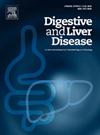Safety of endoscopist-directed nurse-administered sedation in an Italian referral hospital: An audit of 2 years and 19,407 procedures
IF 4
3区 医学
Q1 GASTROENTEROLOGY & HEPATOLOGY
引用次数: 0
Abstract
Background and study aims
Balanced propofol sedation (BPS) administered by adequately trained non-anaesthesiologist personnel has gained popularity in GI endoscopy because of its shorter procedure and recovery time, high patient satisfaction, and low rate of adverse events (AEs), despite being considered controversial. We report data from an audit of endoscopist-directed (ED) nurse-administered sedation in an Italian referral hospital.
Patients and methods
Consecutive endoscopic procedures performed between 2020 and 2022 were considered. Under the guidance of the endoscopist, the nurse administered midazolam/fentanyl, followed by a progressive top-up dosage of a 10–20 mg bolus of propofol to achieve moderate to deep sedation. The endoscopists and nurses were all certified in our hospital with a continuous and scheduled training from 2006.
Results
During the study period, a total of 19,407 examinations (7,803 EGDS, 10,439 colonoscopies, 77 PEG, 697 EUS, and 365 ERCP) and 14,415 patients were included. Of these, 29.4 % of patients were classified as ASA I, 66.5 % as ASA II, and 5.1 % as ASA III. Hypotension was recorded in 1,293 (6 %) examinations and bradycardia in 176 (0.9 %) patients. Eleven patients (0.06 %) had minor respiratory adverse events. Two patients (0.01 %) had major AEs requiring orotracheal intubation.
Conclusions
ED-BPS is safe in low-risk patients. Major AEs occurred in 0.01 % of procedures.
意大利一家转诊医院由内镜医师指导护士使用镇静剂的安全性:对 2 年和 19,407 例手术的审计。
背景和研究目的:由训练有素的非麻醉师人员实施的平衡异丙酚镇静(BPS)因其手术和恢复时间短、患者满意度高、不良事件(AEs)发生率低而在消化道内镜检查中越来越受欢迎,尽管这还存在争议。我们报告了一家意大利转诊医院对内镜医师指导(ED)护士管理镇静剂的审计数据:研究对象为 2020 年至 2022 年期间进行的连续内窥镜手术。在内镜医师的指导下,护士使用咪达唑仑/芬太尼,然后逐步补充 10-20 毫克的异丙酚,以达到中度到深度镇静的效果。内镜医师和护士都是本医院的认证人员,从2006年开始接受持续和定期的培训:研究期间,共纳入了 19,407 例检查(7,803 例 EGDS、10,439 例结肠镜检查、77 例 PEG、697 例 EUS 和 365 例 ERCP)和 14,415 名患者。其中 29.4% 的患者被划分为 ASA I 级,66.5% 为 ASA II 级,5.1% 为 ASA III 级。在 1,293 例(6%)检查中记录到低血压,在 176 例(0.9%)患者中记录到心动过缓。11名患者(0.06%)出现了轻微的呼吸系统不良反应。两名患者(0.01%)出现了需要气管插管的严重不良反应:结论:ED-BPS 对低风险患者是安全的。结论:ED-BPS 对低风险患者是安全的,发生重大 AE 的比例为 0.01%。
本文章由计算机程序翻译,如有差异,请以英文原文为准。
求助全文
约1分钟内获得全文
求助全文
来源期刊

Digestive and Liver Disease
医学-胃肠肝病学
CiteScore
6.10
自引率
2.20%
发文量
632
审稿时长
19 days
期刊介绍:
Digestive and Liver Disease is an international journal of Gastroenterology and Hepatology. It is the official journal of Italian Association for the Study of the Liver (AISF); Italian Association for the Study of the Pancreas (AISP); Italian Association for Digestive Endoscopy (SIED); Italian Association for Hospital Gastroenterologists and Digestive Endoscopists (AIGO); Italian Society of Gastroenterology (SIGE); Italian Society of Pediatric Gastroenterology and Hepatology (SIGENP) and Italian Group for the Study of Inflammatory Bowel Disease (IG-IBD).
Digestive and Liver Disease publishes papers on basic and clinical research in the field of gastroenterology and hepatology.
Contributions consist of:
Original Papers
Correspondence to the Editor
Editorials, Reviews and Special Articles
Progress Reports
Image of the Month
Congress Proceedings
Symposia and Mini-symposia.
 求助内容:
求助内容: 应助结果提醒方式:
应助结果提醒方式:


